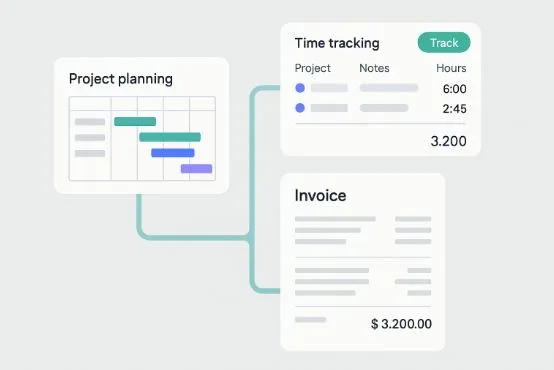Geopolitical Events and Their Impact on Global Financial Markets
Markets don’t operate in a vacuum. Behind every chart move or asset revaluation is a complex web of global relationships, political decisions, and macroeconomic reactions. And few forces are as capable of triggering sudden, sharp shifts across markets as geopolitical events.
From war and elections to sanctions and trade agreements, geopolitics plays a critical role in shaping investor behaviour. For traders and investors alike, understanding how to interpret these developments and knowing how to position accordingly is essential.
Why Geopolitics Moves Markets
At the most basic level, geopolitical events introduce uncertainty. And markets dislike uncertainty. Whether it’s a military conflict, political scandal, or breakdown in diplomatic relations, these events can:
- Shift commodity prices
- Disrupt trade routes and supply chains
- Impact currency strength
- Trigger volatility in global indices
But it’s not always negative. Elections, international accords, and policy reforms can drive confidence and lift markets too. The key is in the timing, scale, and expected economic impact.
How Investors React: Not Just the Headlines
Investors don’t just react to the event itself, but to how it changes the broader landscape. For example, if conflict in a key oil-producing region threatens supply, oil futures may spike. If a central bank responds to rising risk with interest rate cuts, currencies may shift direction.
What matters most is perception. The mere expectation of future instability can move markets long before anything material happens. This is where analysis, not panic, becomes a trader’s best tool.
Case Study: Russia-Ukraine and Energy Markets
The 2022 invasion of Ukraine didn’t just create a regional crisis. It upended the energy market across Europe and reshaped inflation expectations globally. Natural gas prices soared, oil saw renewed buying, and equity markets swung wildly as investors tried to price in the ripple effects.
Currency markets also moved. The euro weakened due to energy risk and economic pressure. Safe havens like the US dollar and Swiss franc saw increased inflows. Those who were tracking these interlinked responses were in a stronger position to trade the news and manage risk.
Risk Management During Uncertainty
When tensions rise, volatility follows. For traders, this is both an opportunity and a warning.
In times of instability, having a clear framework for trade entries, exits, and capital exposure becomes even more important. This includes tools like:
- Stop-loss orders to protect downside
- Smaller position sizes in choppy markets
- Avoiding overexposure to highly sensitive sectors
Using a demo trading simulator can be a practical way to stress test these strategies. When markets are fast-moving, simulated environments let you experiment with different trade setups without financial risk. Despite what some people assume, this is not just for beginners! You’ll find that even experienced traders often use demo tools to trial new approaches under event-driven pressure.
Currencies and Central Banks: An Interconnected Web
Currency markets are often the first to respond to geopolitical news. That’s because investors quickly shift capital to what they perceive as “safer” or more stable regions.
Safe-haven currencies like the US dollar, Japanese yen, and Swiss franc tend to rise in value during global stress events. On the other hand, emerging market currencies or those linked to commodity exports may decline if conflict threatens supply routes or demand.
Central banks also play a role. If geopolitical events risk slowing growth or fueling inflation, monetary policy may adjust in response, sometimes aggressively.
How Traders Use Platforms to Track It All
News-based trading is about more than reading headlines. It’s about acting on the data, fast! That’s where your platform matters. Many traders rely on fast, flexible interfaces like the MT4 broker environment, known for its stability, speed of execution, and compatibility with custom indicators and Expert Advisors (EAs). In a geopolitical crisis, being able to quickly assess chart patterns, track breakout zones, and manage open trades with precision is a must.
Sector Sensitivity: Who’s Most Affected?
Not all assets respond the same way to global events. Here’s how some of the major sectors typically react:
Commodities
Commodities are often the most directly impacted. Gold, oil, natural gas, and agricultural commodities can all move sharply on news of supply disruptions or war.
Equities
Stock indices may drop in the short term due to risk aversion. However, individual sectors like defense, energy, or cybersecurity may see inflows depending on the nature of the event.
Currencies
Tend to reflect relative economic strength, safety perceptions, and interest rate differentials. Risk-off flows tend to favour the US dollar and yen.
Bonds
Government bonds usually rally in periods of geopolitical stress as investors seek security and predictable returns.
Being aware of these tendencies helps traders anticipate which assets may offer trade setups or risk exposure, depending on how events unfold.
Political Risk in Emerging Markets
Geopolitical impact is often strongest in emerging or frontier markets, where political stability is less entrenched and economic shocks hit harder. Sudden leadership changes, contested elections, or civil unrest can all lead to sharp capital outflows and currency depreciation.
That’s why understanding local context not just global headlines is a necessity. For example, a peaceful election in an emerging market might trigger a rally if it signals stronger governance and reform potential. On the other hand, policy uncertainty can send investors running to more stable economies.
Traders who follow regional developments alongside technical setups tend to be better positioned to respond intelligently, not emotionally.
Practicing for Real Events in Simulated Environments
One of the most overlooked ways to improve geopolitical awareness is to practice trading through historical events. You can study past price action, review news timestamps, and explore how markets reacted in different asset classes.
A solid demo trading platform allows you to recreate those moments, adjust your strategy, and see what might have worked better, all without risking capital. This kind of reflection sharpens your instincts and helps you plan ahead when new risks appear.
From Headlines to Strategy
The global political landscape will never be calm for long, and that’s why geopolitical awareness is a must for serious investors and traders. It’s not about reacting emotionally to every headline. It’s about understanding the context, assessing the economic impact, and executing trades with clarity and control.
From safe-haven assets to regional opportunities, there’s always a way to position if you’ve done the work. Combine market insight with practical tools like demo simulators and analytical platforms to turn chaos into calculated decision-making.
FAQs – What Traders Ask About Geopolitics and Markets
Do markets always drop during conflict?
No. While initial reactions often involve risk-off selling, markets sometimes rebound quickly if events are contained or short-lived.
Is gold a guaranteed safe haven during global events?
Not guaranteed, but it often sees demand when uncertainty rises, especially if inflation is also a concern.
Can geopolitical risk be priced in ahead of time?
Sometimes. If an election or summit is widely anticipated, traders may start to position early. But unexpected developments often create the biggest moves.
What platform features matter most during political events?
Speed, stable execution, access to news feeds, and flexible charting tools. With a quality platform on your side, you’ll definitely give yourself an edge in fast-moving environments.





